“To be, or not to be” – Zelenskyy quotes Shakespeare
“To be, or not to be”, says the Ukrainian President, Volodymyr Zalensky, quoting the famous soliloquy in one of Shakespeare’s works.
nanadwumor
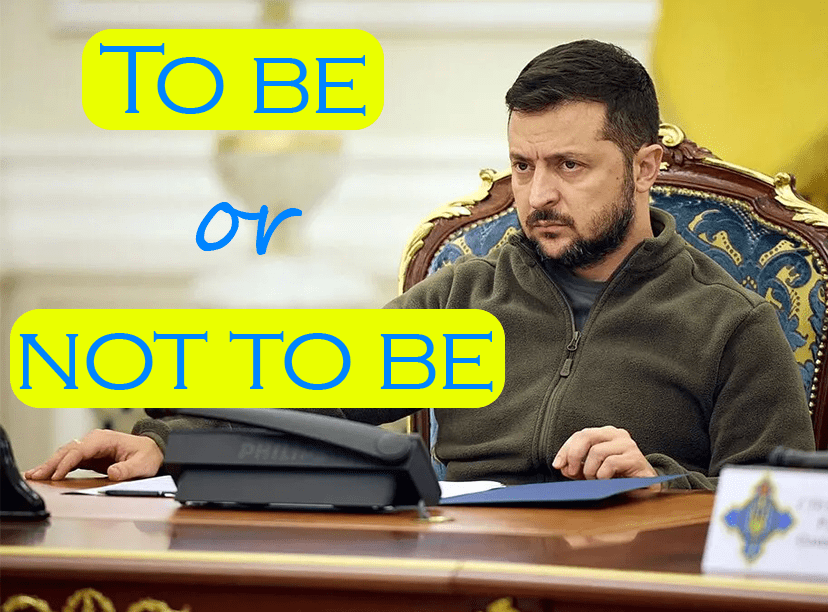
- President Zelenskyy addressed the British parliament via a video call
- Zelenskyy quoted Shakespeare’s soliloquy in Hamlet, “To be or Not to be”
- There are at least 3 themes in Hamlet’s soliloquy. This include : Doubt and uncertainty; Life and Death; Madness
- Zelenskyy hinted that Ukranians have no choice but to fight for their freedom
“To be, or not to be”, says the Ukrainian President, Volodymyr Zalensky, quoting the famous soliloquy in one of Shakespeare’s works.
A soliloquy is a literary device which defines a state where a person or an actor speaks to himself/herself on the stage aloud, alone regardless of whether people are listening or not.
The “To be or not to be” soliloquy appears in Act 3, Scene 1 of Shakespeare’s Hamlet.
In this scene, Prince Hamlet thought about life, death, and suicide. He pondered over the thought that whether it might be preferable to commit suicide to end one’s suffering and to leave behind the pain, agony and uncertainty that characterizes a person’s life.
As Prince Hamlet spoke to himself on stage, believing he’s alone, his uncle (King Claudius) and Polonius (the king’s councilor) were both in hiding and eavesdropping.
Zelenskyy addressed the British parliament via a video link.
Zelenskyy’s use of Shakespeare’s quote was very weighty for the UK parliament given not just the meaning of the quote but also the fact that Shakespeare himself was English or British.
A snippet of Shakespeare’s Hamlet is:
To be, or not to be, that is the question,
Whether ’tis nobler in the mind to suffer
The slings and arrows of outrageous fortune,
Or to take arms against a sea of troubles,
And by opposing end them? To die: to sleep;
No more; and by a sleep to say we end
The heart-ache and the thousand natural shocks
That flesh is heir to, ’tis a consummation
Devoutly to be wish’d. To die, to sleep;
To sleep: perchance to dream: ay, there’s the rub;
For in that sleep of death what dreams may come
When we have shuffled off this mortal coil,
Must give us pause: there’s the respect
That makes calamity of so long life;
For who would bear the whips and scorns of time,
The oppressor’s wrong, the proud man’s contumely,
The pangs of despised love, the law’s delay,
The insolence of office and the spurns
That patient merit of the unworthy takes,
When he himself might his quietus make
With a bare bodkin? who would fardels bear,
To grunt and sweat under a weary life,
But that the dread of something after death,
The undiscover’d country from whose bourn
No traveller returns, puzzles the will
And makes us rather bear those ills we have
Than fly to others that we know not of?
Thus conscience does make cowards of us all;
And thus the native hue of resolution
Is sicklied o’er with the pale cast of thought,
And enterprises of great pith and moment
With this regard their currents turn awry,
And lose the name of action.–Soft you now!
The fair Ophelia! Nymph, in thy orisons
Be all my sins remember’d.
In the play, it’s interesting that Hamlet didn’t pose this question to himself alone but for all of humanity. He began by asking whether it was better to passively put up with life’s pains (“the slings and arrows”) or actively end it through suicide (“take arms against a sea of troubles).
Ukrainians and their President although are bravely repelling a Russian invasion, they currently stand confused between a belligerent Russian neighbor and a “weak” and somehow indifferent NATO which is afraid to ignite any nuclear war with Putin, a man widely tipped to be unhinged.
The Ukrainian President has called for a NATO-imposed no-fly-zone but the US and her NATO allies have explained flatly on why a mission to secure Ukrainian airspace won’t fly.
That would be a declaration of war against Russia because it would mean shooting down Russian jets that would flout the ban.
The Ukrainian President, Zelenskyy is clearly the antipode to the cruelty of the cold Russian strongman, Putin.
Zelenskyy has succeeded in galvanizing the entire world with exception of some few, like North Korea, Iran, Venezuela etc, against Putin and his oligarchs and has injected steel into the global effort to turn Russia into a pariah.
The US had initially urged him to leave the country by offering to give him a lift and seek refuge, perhaps, in the United States.
But the gallant, comedian-turned-president repulsed the US’ offer with a famous and viral quote :
“I need ammunition, not lift”.
“To be or not to be” can be interpreted as “to die or not to die”.
Apparently, the Jewish Ukrainian President is prepared “to be or not to be”. But either way, Ukraine must be sovereign and able to make her own decisions without puppet strings from Moscow.
3 most important themes in Shakespeare’s “to be or not to be
There are a lot of themes in Hamlet’s soliloquy, “To be or not to be”. The three most critical ones worthy of attention are:
(1) Doubt and uncertainty
(2) Life and death
(3) Madness
Doubt and Uncertainty
It must be said that Ukrainians are as uncertain about their EU membership future as the West are as to whether Putin’s nuclear deterrence readiness was just a bluff.
Their application to join NATO has fallen on death ears. It is clear they’ll abandon such fancy dream now and seek strong EU integration.
Their bid to seek an EU identity with immediate effect has managed to ring bells in only some few sympathetic ears in Brussels. Doubt and uncertainty have surely set in.
Life and Death
Many Ukrainians have volunteered to fight with some flying in from abroad to defend their homeland. Unlike Afghanistan President, Ashraf Ghana, who absconded at the advance of the Taliban, the Ukrainian President has refused to bolt away although several attempts have been made on his life.
To him and Ukrainians, it’s a matter of life or death.
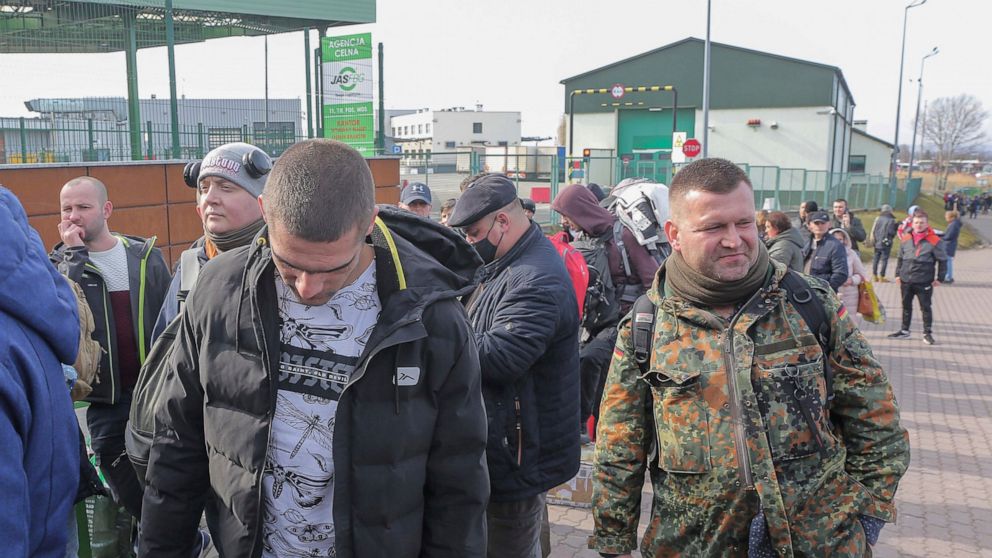
Polish volunteer Jedrzej, 34, in military uniform joins Ukranians, left, waiting to cross the border to go and fight against Russian forces, at Medyka border crossing, in Poland, Saturday, Feb. 26, 2022. (AP Photo/Visar Kryeziu)
Madness
In the Shakespeare’s work, the entire personality of Hamlet can be said to play around the theme of madness. Well, whether Hamlet was truly mad or had feigned it was debatable.
But this is what is played before our very eyes in Eastern Europe with the Russian onslaught on Ukraine.

Russian President Vladimir Putin
Many believe the Russian leader is deranged to launch a war that has killed hundreds of civilians in its 12th day and it’s likely to kill thousands if not hundreds of thousands in the coming weeks.
Or perhaps, the Ukrainian leader is mad for bracing for his death in the face of blatant Russian military aggression and supremacy under a tyrannic leader, Putin.
So, Zelensky asks the UK parliament once again, “to be or not to be. That is the question”.
You can read the full text of the Act 1, Scene 3 here.
Join Our Telegram Group
Join Our WhatSapp Group
You May Also Like…
U.K. Police Holding Cells Offer Only Simple Facilities, Even For a Former Prince.
Police custody rules ensure every suspect faces the same strict process....
US House Democrats Call The Arrest Of Former Prince Andrew Mountbatten a Move Toward Justice For Epstein’s Victims.
Royal arrest sparks calls for accountability across the U.S. political stage. [Sassy_Social_Share title="Sharing is Caring" count="1"...
Britain’s Former Prince Andrew Arrested By Police Amid Epstein Revelations
A royal arrest shocks Britain and shakes the crown. Andrew...

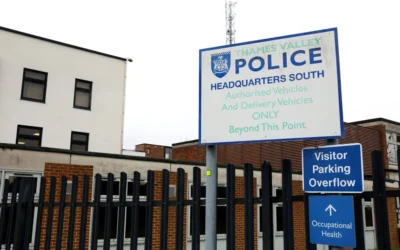
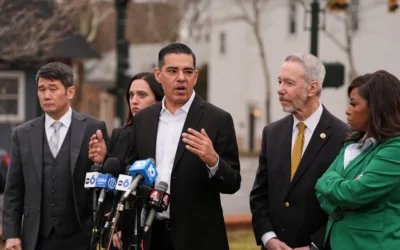
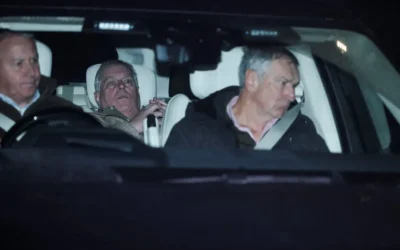
0 Comments